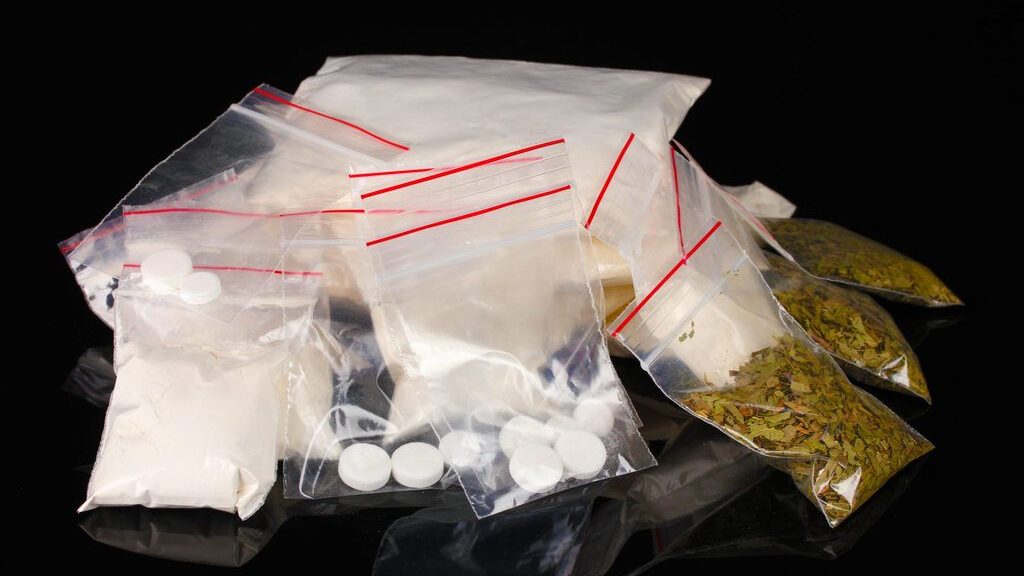Published in Criminal Law by Chris Eskew on October 7, 2022.

There is no black-and-white answer to how long you will go to jail for a drug possession conviction in Indiana. The jail or prison sentence and other penalties will depend on several factors, including the type of drug, the quantity of the drug, and your prior criminal history. Your punishment will also depend on whether you are charged with a misdemeanor or a felony. That said, there are general incarceration ranges for designated drug crimes. Even one day in jail may be too long for most people. If you find yourself staring down the barrel of a drug possession charge, do not delay in seeking the advice of a criminal defense attorney.
At Eskew Law, criminal defense is our passion. Each of our clients receives the one-on-one personalized attention they deserve. We believe getting to know our clients is the most important way to defend them successfully in court. Possession of drugs is a serious criminal charge. Call us today to discuss your case.
Drug Possession in Indiana
As in most states, it is unlawful to possess illegal drugs in Indiana. But it is critical to understand what constitutes possession to appreciate the significance of drug laws.
What Is Possession?
According to the law, the individual must knowingly have direct physical control over the drug or paraphernalia to “possess” an illegal substance. In many situations, there is little doubt that the defendant possesses the drugs. For instance, if the drug is found in their pocket, it is pretty clear they have absolute control of the item.
However, it can be more ambiguous and open to interpretation if the drugs are not found on your actual person. Suppose that drugs are found in the trunk of a vehicle with multiple passengers. You can see how pinning down which of the passengers had “possession” of the drugs might be a bit more tricky. In Indiana if someone has the ability to obtain dominion and control of an item and the intent to do so they are in constructive possession of an item.
Drug Schedule
The United States Drug Enforcement Agency (DEA) classifies controlled substances into five schedules based on their risk of addiction and accepted medical use. Schedule V drugs are the least offensive and least addictive, while Schedule I drugs carry the most significant risk of addiction and abuse.
Below is a brief breakdown of the five schedules:
- Schedule V drugs are typically sold on store shelves and have a meager potential for abuse.
- Schedule IV drugs have minimal potential for abuse and widely accepted medical uses. Examples include clonazepam, diazepam, and other sedatives.
- Schedule III drugs pose a moderate risk of abuse and dependency and only have some accepted medical use. These include codeine, ketamine, and anabolic steroids.
- Schedule II drugs have a high risk of abuse but may still have some recognized and accepted medical uses, for example, oxycodone, opium, fentanyl, and cocaine.
- Schedule I drugs have the highest risk of dependency and abuse and have no accepted legal use. These include drugs such as heroin, PCP, and LSD.
To learn more about the drug schedules and classifications, contact the lawyers at Eskew Law.
Indiana Possession of a Controlled Substance Statute
The Indiana Legislature defines a controlled substance as a drug, substance, or immediate precursor in Schedule I, II, III, IV, or V. The definition is comprehensive and encompasses over-the-counter medicine, prescription drugs, narcotics, inhalants, hallucinogens, and more. Drugs that may be lawful with a prescription can have significant penalties if possessed without one. Even drugs such as marijuana, which are now commonplace to many people, can land you in hot water in Indiana. The bottom line is that the possession of drugs in Indiana is highly frowned upon and fiercely prosecuted.
Drug Possession Penalties
A drug possession charge and jail time almost certainly go together. However, there is a wide range of penalties for drug possession. The wide range is because each situation is very fact specific. The type and quantity of drugs will dictate the charge and subsequent punishment. Your sentence will also depend on factors specific to you, such as your prior criminal history. Generally, there are ranges in which you can expect to be sentenced.
In Indiana, drug offenses generally range from a Class B misdemeanor to a Level 2 felony. Perhaps the most common drug charge is the Class A misdemeanor of possessing fewer than 30 grams of marijuana.
A snapshot of common drug possession penalties is as follows:
Class B Misdemeanor
- Up to 180 days in jail, and
- A fine of up to $1,000.
Class A Misdemeanor
- Up to 1 year in jail, and
- A fine of up to $5,000.
Level 6 Felony
- Up to 2.5 years in prison, and
- Up to a $10,000 fine.
A Class A misdemeanor is automatically elevated to a Level 6 felony if you possess more than 30 grams of marijuana or have a prior conviction.
Typically, the more severe felonies apply to instances of drug dealing, manufacturing, or trafficking. Whether you face a minor misdemeanor or the most severe felony, the drug defense attorney at Eskew Law, will stand up for you.
Defenses
Simply because you are accused of drug possession does not automatically mean you are guilty. A skilled drug possession defense attorney will know how to spot the weaknesses in the prosecutor’s case and can uncover any potential defenses you may have. Common defenses to drug charges include:
- Unlawful search (4th Amendment violation),
- Drugs did not belong to you, so you did not “possess” them,
- You had a valid prescription, and
- Entrapment.
If you were recently charged with illegal drug possession, contact our experienced attorneys at Eskew Law, to get started on your defense. Spotting weaknesses in the prosecutor’s case and building a solid defense is what we do!
Indiana Drug Possession Defense Lawyers
Even minor drug charges can have long-lasting consequences. Don’t attempt to defeat a possession charge on your own. It takes the sharp skills of a well-versed drug defense attorney to challenge the prosecutor’s case successfully. At Eskew Law, we are no strangers to fighting for our clients in the courtroom. Let us put our experience to work for you! Call us today to schedule a confidential, no-cost consultation.

